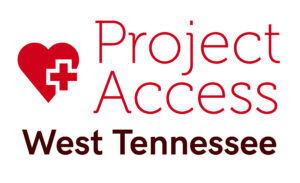| Dear CPF members, We have been informed that we have our first confirmed case of measles in Middle Tennessee. The case involves an unimmunized 16-year-old seen in the Murfreesboro area. As this news spreads, it will be important to have messaging ready for your practice. Obviously, the most important message will the amazing protection that MMR vaccination provides. Even if just exposed, a dose of MMR given within 72 hours of exposure provides adequate protection from disease due to the long incubation period of measles. Patients have a 93% probability of protection from one MMR dose, and 97% after two doses. The routine MMR schedule calls for doses at 1 year and 4 years of age. As Dr. Buddy Creech pointed out in our webinar this week, the second dose of MMR may be given as early as 28 days after the first. Dr. Creech advised if using an early MMR #2 dose, consider not giving the second dose before 18 months of age to minimize any maternal antibody interference. Dr. Creech notes that after 18 months of age or if caring for a younger, but high-risk patient, the 28-day interval is adequate. Immunizing patients 6 months to one year of age is not currently recommended due to the isolated nature of this case, but you may consider it based on your proximity to the index case or the concern of the family. Remember any dose of MMR vaccine given before 12 months of age does not count in the series and patients should still receive a 2-dose series per the routine recommendations. Consider running patient recalls for any patients not up to date with MMR and encouraging immunization through your website or social media. Be vigilant and consider triaging patients with fever and rash through a different entrance or even outside. Make sure all clinical staff are up to date on MMR, as immunized staff should be the only ones caring for potential measles patients. Also, make sure you have adequate surgical masks available for patients and N-95 for staff. The webinar discussed office protocols for isolation and cleaning of rooms after suspected cases. Report any suspected cases immediately to the state health department to coordinate testing, isolation, treatment and follow-up. It is possible you may see an uptick in requests for MMR vaccination, so watch your inventory closely and consider adjusting your vaccine ordering if needed. The link to this week’s webinar is posted below with other measles information. Please reach out if we can be of assistance and thanks again for all you do to keep children healthy.]  Slides Video Recording Should I test for Measles? Submitting Specimens for Measles Testing TN Dept of Health – Measles Toolkit Have additional questions, please email Michael.Hook@vumc.org. Rebroadcast… TN Health Alert Network Communication: Measles March 12, 2025 Summary Due to a substantial rise in measles cases in the United States and globally, the Tennessee Department of Health (TDH) is reminding clinicians to rapidly identify suspected measles infections, isolate patients quickly and inform public health by reporting suspected measles cases at 615-741-7247. Delays in identification of cases lead to additional exposures and ongoing transmission. According to the Centers for Disease Control and Prevention (CDC), there have been 222 cases of measles across 12 states during 2025 alone, including 3 identified outbreaks and one pediatric death. Recommendations to Identify, Isolate and Inform: 1. Identify – Clinicians should maintain high suspicion for measles in unvaccinated individuals who present with fever and rash, especially with history of travel to states or countries with recent measles cases. Measles is a highly contagious viral illness characterized by a prodrome of fever, cough, coryza, and conjunctivitis followed by a maculopapular rash that begins on the head and descends to the neck, trunk, upper extremities, and lower extremities. Although less likely, measles infection may be considered in individuals with history of one or two doses of MMR vaccine if clinical presentation is consistent and/or epidemiological link to a known case is present. 2. Isolate – To avoid exposures within healthcare facilities, patients presenting with concern for measles or compatible symptoms should be immediately masked with a surgical mask and isolated in a room with a closed door. Airborne precautions should be implemented, including placement in a negative pressure airborne isolation room as available. Measles virus can remain suspended in the air for up to two hours after an infected person has vacated an area. Areas where suspected cases have spent time should be closed off and remain unoccupied for at least two hours. Patients with suspected measles should be cared for by staff with documented immunity to measles. 3. Inform – Clinicians should immediately report suspected measles cases to the Tennessee Department of Health by calling the Vaccine Preventable Diseases Program at 615-741-7247. Public health should be informed prior to specimen collection. Testing Measles testing is available at the TDH State Public Health Laboratory with prior consultation and approval from a member of the Vaccine Preventable Disease and Immunization Program (VPDIP). Clinicians should call TDH at 615-741-7247 to request testing approval. Specimens for measles serology and PCR testing should be collected at the same time, including serum for serology and a nasopharyngeal, oropharyngeal, or nasal swab in viral transport media for measles PCR. Please refer to the TDH Laboratory Directory of Services for detailed information on specimen collection, storage, and transport. Vaccine Frequently Asked Questions 1. My patient is traveling to an area with a measles outbreak (or internationally), can I give their 6-month old child an MMR vaccine early? a: Yes, infants aged 6-11 months who do not have a contraindication to MMR vaccine, should receive one dose of MMR prior to international travel or travel to areas where there is an active measles outbreak. Infants who get one dose of MMR vaccine before their first birthday should get two more doses (one dose at 12 through 15 months of age and another dose separated by at least 28 days). (Yellow Book 2024, Rubeola/Measles) 2. My adult patient was vaccinated in 1963, do they need a booster vaccine?a. Adults who were born after 1957, but were vaccinated prior to 1968 with either inactivated (killed) measles vaccine or measles vaccine of unknown type should be revaccinated with at least one dose of live attenuated measles vaccine. This recommendation is intended to protect those who may have received killed measles vaccine, which was available in 1963-1967 and was not effective. (MMR Vaccination: What Everyone Should Know) b. Anyone who has received two doses of live measles-virus vaccines is considered fully immunized and does not need a booster dose. Two doses of live measles-virus vaccine are considered to be 97% effective at preventing measles infection and immunity is lifelong. 3. How do I know if my clinic or hospital staff are immune to measles?a. Healthcare personnel are considered immune to measles if they have written documentation of:i. 2 doses of vaccination with live measles-virus containing vaccine orii. Laboratory evidence of immunity oriii. Laboratory confirmation of disease (MMWR, Immunization of Health Care Personnel)For more information Additional information concerning measles reporting requirements, general information, and cases and outbreaks can be found at the below links. TDH Measles Webpage TDH Measles Toolkit TDH Measles Testing Guide CDC Measles Webpage CDC Measles Cases and Outbreaks Thank you for your participation in public health in Tennessee. Please contact 615-741-7247 to reach the TDH Vaccine Preventable Diseases and Immunization Program. |







